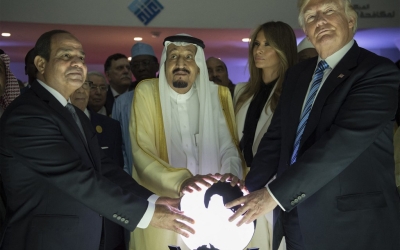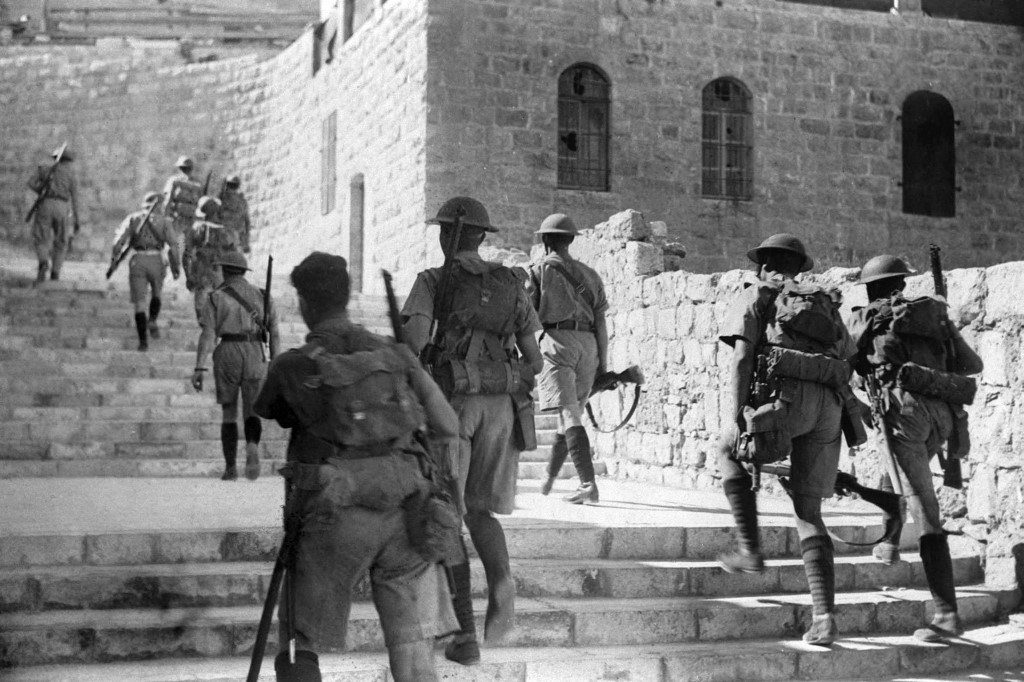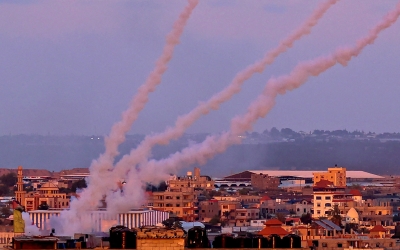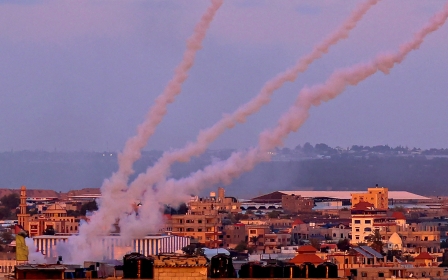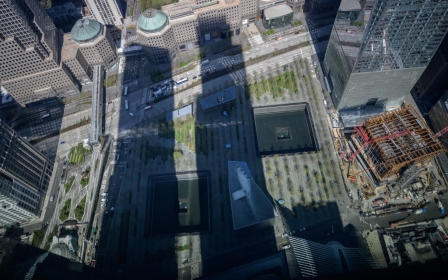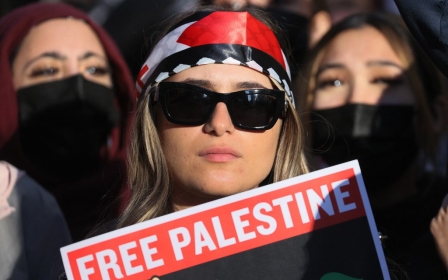The binary imperialist world of terrorists and anti-terrorists
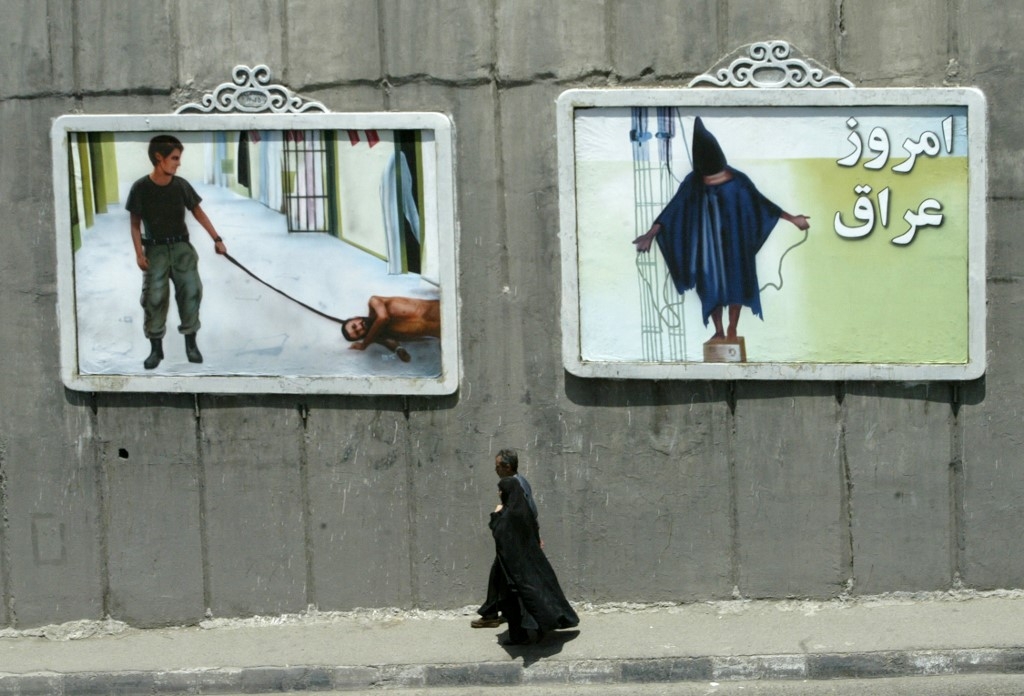
In the last two decades, the US has divided the world between terrorists and anti-terrorists. Whereas terrorism is not a new term and harks back to the French Revolution, the US “war on terror” launched in 2001 has remade it into a western obsession.
If colonial wars have been launched in the name of fighting the “barbarism” and “heathenism” of non-Europeans since the 16th century, the new war on terror has given “barbarism” a new name. Official justifications and mainstream western press coverage justified the war by the fabrication that Iraq had weapons of mass destruction and that it had had a role in the attacks of 9/11, in addition to the laughable claim that US wars aim to bring democracy to non-white people living under despotic rule.
US policymakers also understand that the goals of US wars are imperial economic pillage and military supremacy, which they call 'democracy'
In the past week, newly released US documents are said to point to alleged Iranian involvement in 9/11, in preparation for more US aggression against that country. US strategists realise that neither Iraq nor Iran had a role in the 9/11 attacks, except that the 9/11 attacks provided the US with pretexts for war designed for western public consumption.
US strategists also understand that the goals of US wars are imperial economic pillage and military supremacy, which they call “democracy”. This is no different from the motives of those who launched Europe’s colonial wars over the last five centuries, which they understood perfectly as in the interest of economic pillage and profit, which they called “civilisation”.
More pronounced pedigree
New MEE newsletter: Jerusalem Dispatch
Sign up to get the latest insights and analysis on Israel-Palestine, alongside Turkey Unpacked and other MEE newsletters
In the imperial politics of the Middle East and especially in the settler-colonial politics of Palestine and Algeria, terrorism has had a more pronounced pedigree, which would play an important role in informing the US war on terror.
Whereas the film The Battle of Algiers, depicting French barbarism suppressing the Algerian anti-colonial revolutionaries, had been a favourite of anti-colonialists around the world since it was made in the 1960s, the US Defense Department used the film after 2001 as an educational training video for its military strategists on how to suppress anti-colonial violence, defined as “terrorism”.
In Israel, just a few days after the events of 9/11, Israeli Prime Minister Ariel Sharon, busy suppressing the Second Palestinian Intifada, informed the Americans that “everyone has his own bin Laden. Arafat is our bin Laden”. The Israeli experience with the ongoing suppression of indigenous Palestinian resistance came to function as a principal model for the US war on terror.
The history of the term “terrorist” in Palestine since the 1930s is most illustrative in this regard. Early Palestinian resistance under British colonial rule mostly took the form of legal appeals to the British, organising and mobilising the population against land sales to Zionists, and appealing to international actors to help in obtaining national independence.
As this proved ineffective, by 1935 Palestinian peasant resistance erupted, becoming an all-out revolt, which lasted from 1936 to 1939. The revolt included strikes, demonstrations and guerrilla action taken against the British and the Jewish colonial settlers. The British characterised the guerrilla war of liberation as “terrorism” and suppressed it with massive military action, including the re-invasion of the country, killing close to 9,000 Palestinians and wounding about 30,000, exiling dozens and executing more than 100 Palestinian revolutionaries.
The British organised joint British-Zionist death squads (known as the Special Night Squads) that attacked Palestinian villages at night and shot and killed an untold number of Palestinians.
Zionist terrorism
The Jewish colonists at the time began to use new methods to suppress Palestinian resistance, including blowing up cafes with grenades (in Jerusalem for example on 17 March 1937), and placing electrically timed mines in crowded market places, first used by the Zionists against Palestinians in Haifa on 6 July 1938. When, following the suppression of the Palestinian revolt, the British had to limit their support for the Zionist project, Zionist attacks turned against them.
The Zionist response included blowing up a ship in Haifa in November 1940, killing 242 Jewish refugees and a number of British police personnel; the assassination of British government officials; taking British citizens hostages; blowing up government offices killing employees and civilians; blowing up the British embassy in Rome (1946); flogging and killing captured British soldiers; and sending letter bombs and parcel bombs to British politicians in London, among others.
Menachem Begin, the future prime minister of Israel, was the mastermind behind a number of these attacks. Begin was unconvinced that the actions of his group and those of other Zionist colonists constituted “terrorism”. Following his group’s massacre of hundreds of Palestinians at the village of Deir Yassin in April 1948, his name had become synonymous with terrorism. Albert Einstein and Hannah Arendt, among others, described Begin’s group as not only “a terrorist right-wing, chauvinist organisation”, but “closely akin to… the Nazi and fascist parties”.
Zionist violence against the Palestinians was seen more in the register of European Jewish civilisation fighting primitive Palestinian barbarism
In his 1951 autobiography, Begin dissociates his group from terrorism. He was astute enough to appreciate that “terrorism” is not an objective term agreed upon by all parties, but rather a rhetorical strategy used by unequal enemies for political ends: “The word ‘terror’ came to define the acts of revolutionaries or counter-revolutionaries, or fighters for freedom and oppressors. It all depends on who uses the term.”
Begin here is speaking of Zionist terrorism against the British, not the Palestinians. Zionist violence against the Palestinians was seen more in the register of European Jewish civilisation fighting primitive, indigenous Palestinian barbarism. David Ben-Gurion was clear on this issue when he insisted that “we are not Arabs, and others measure us by a different standard… our instruments of war are different from those of the Arabs”.
Sober assessments
But Ben-Gurion understood well the nature of Palestinian resistance to Jewish settler-colonialism: “If I was an Arab leader, I would never make terms with Israel. That is natural; we have taken their country. Sure, God promised it to us, but what does that matter to them? Our God is not theirs. We come from Israel, it’s true, but that was two thousand years ago, and what is that to them? There has been antisemitism, the Nazis, Hitler, Auschwitz, but was that their fault? They only see one thing: we have come and stolen their country. Why should they accept that?”
Ben-Gurion’s understanding of Palestinian resistance was shared by Vladimir Jabotinsky, the founder of Zionist revisionism to which Begin belonged. He too insisted that “any native people - it’s all the same whether they are civilised or savage - views their country as their national home, of which they will always be the complete masters. They will not voluntarily allow, not only a new master, but even a new partner. And so it is for the Arabs.”
These sober assessments did not prevent Ben-Gurion and Israel from proceeding with the conscious and planned destruction of Palestinian society in 1948 and the deployment of a type of violence that Israel would identify as terrorism if emulated by the Palestinians. Israeli official propaganda since then has defined the wanton dispossession of the Palestinian people as a justifiable moral act to redeem “the Jewish people”.
Indeed, to redeem Jews, Zionists not only introduced car bombs and market and cafe bombings to the Middle East, Israel would also introduce plane skyjackings as early as 1954. The Israeli air force would often seize civilian airliners in international skies and divert them to Israel, subject the passengers to inspection, interrogation as well as incarceration.
Moreover, Israel remains the only party in the Middle East that shot down a civilian airliner, as it did a Libyan plane in 1973, killing 106 passengers on board. In the early 1980s, it specialised in planting car bombs in Lebanon.
But as the Israelis and the Americans understand very well, the ongoing discourse on terrorism is not about the victims of “terrorism” but about the “perpetrators”. The fact that state armies more regularly target the very same victims that “terrorists” target, yet are not referred to as “terrorists”, clarifies that it is not the act of “terrorism” that defines the actor as “terrorist” but rather the opposite: it is the perpetrator’s conferred identity as “terrorist” that defines his/her actions as “terrorist” in nature.
Conscious strategy
The massive violence the state of Israel has deployed since 1948 is a conscious strategy to suppress all Palestinian resistance to the theft of their country (which Ben-Gurion acknowledged as nothing but outright theft) and was accompanied by official propaganda that the Israelis were, and are, merely defending “their” country and its redeemed Jewish colonists against terrorism. That Israel acquired the peremptory power as a state since 1948 to designate the indigenous Palestinians who resist it as “terrorists” strengthened such claims even more.
The naming of the latest imperial invasions as the 'war on terror' … is nothing short of the latest justification for colonial and imperial pillage
If conferral of the identity “terrorist” aims to give moral justification for imperial and colonial violence in order to differentiate “legitimate” state violence from anti-imperial resistance deemed “terrorism”, it has failed to persuade its victims; and neither have efforts by imperialist groups, such as Human Rights Watch, who insist on equating colonial violence with anti-colonial resistance, especially in the case of the Palestinians and Israel.
Evidently, the US, Israel and other imperial European countries understand well that the resistance of Palestinians, Algerians, Vietnamese, Iraqis, Afghans, Yemenis, Somalis and other peoples around the world to colonial and imperial invasions and bombings is a legitimate and moral self-defence against imperial and colonial terror, which is why they have to launch political propaganda campaigns and fabrications, and deploy the term “terrorism” to depict such resistance as always immoral and illegitimate.
As for the naming of the latest imperial invasions as the "war on terror", it should be viewed in this historical context - as nothing short of the latest justification for colonial and imperial pillage that Europe and its white settler-colonies have visited on the globe since the 16th century.
The views expressed in this article belong to the author and do not necessarily reflect the editorial policy of Middle East Eye.
Middle East Eye delivers independent and unrivalled coverage and analysis of the Middle East, North Africa and beyond. To learn more about republishing this content and the associated fees, please fill out this form. More about MEE can be found here.



